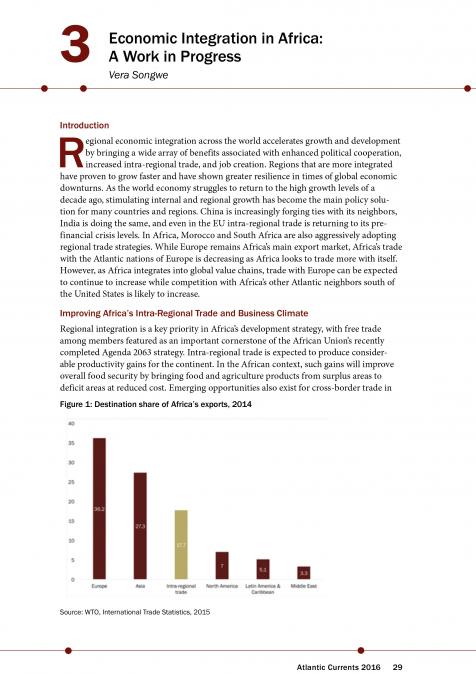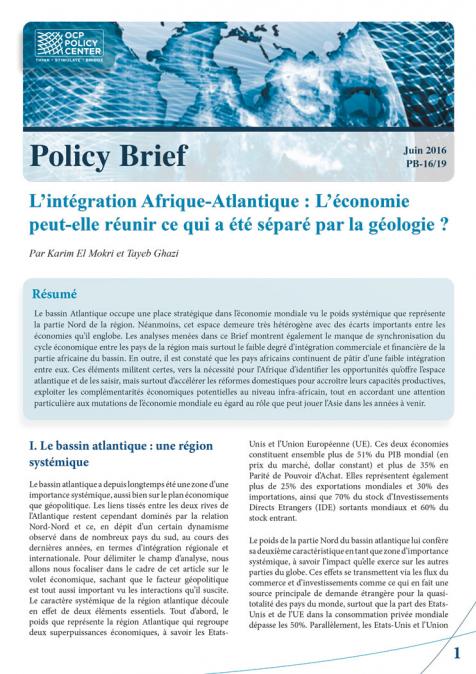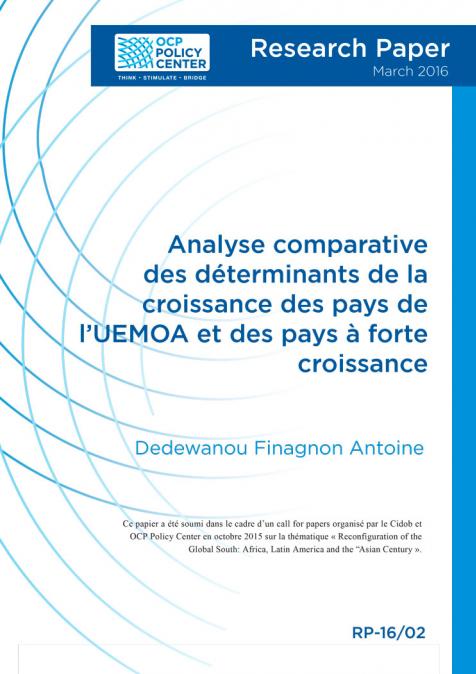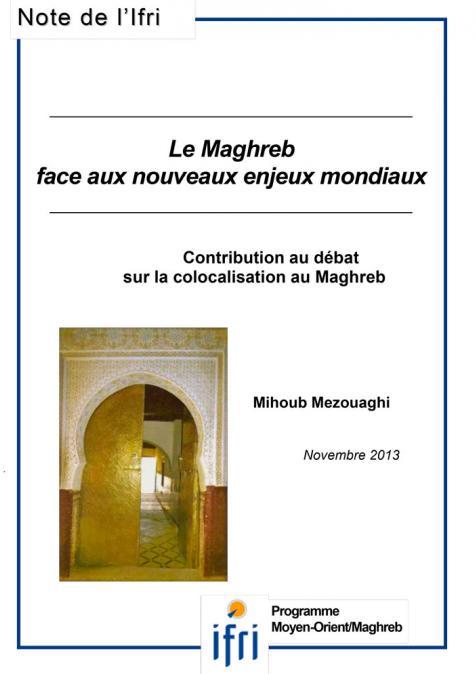Publications /
Policy Brief
Regional economic integration across the world accelerates growth and development by bringing a wide array of benefits associated with enhanced political cooperation, increased intra-regional trade, and job creation. Regions that are more integrated have proven to grow faster and have shown greater resilience in times of global economic downturns. As the world economy struggles to return to the high growth levels of a decade ago, stimulating internal and regional growth has become the main policy solution for many countries and regions. China is increasingly forging ties with its neighbors, India is doing the same, and even in the EU intra-regional trade is returning to its prefinancial crisis levels. In Africa, Morocco and South Africa are also aggressively adopting regional trade strategies. While Europe remains Africa’s main export market, Africa’s trade with the Atlantic nations of Europe is decreasing as Africa looks to trade more with itself. However, as Africa integrates into global value chains, trade with Europe can be expected to continue to increase while competition with Africa’s other Atlantic neighbors south of the United States is likely to increase








